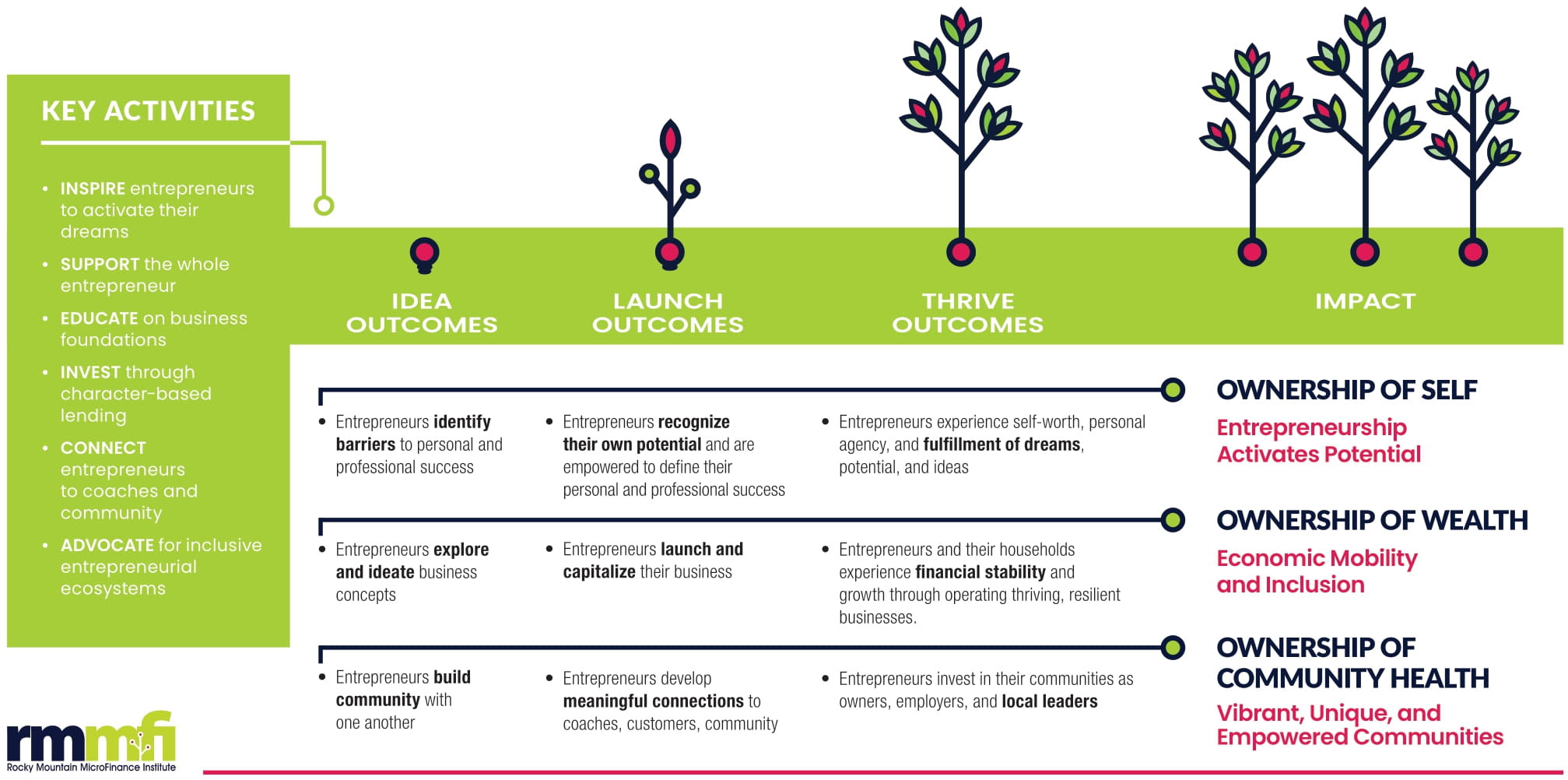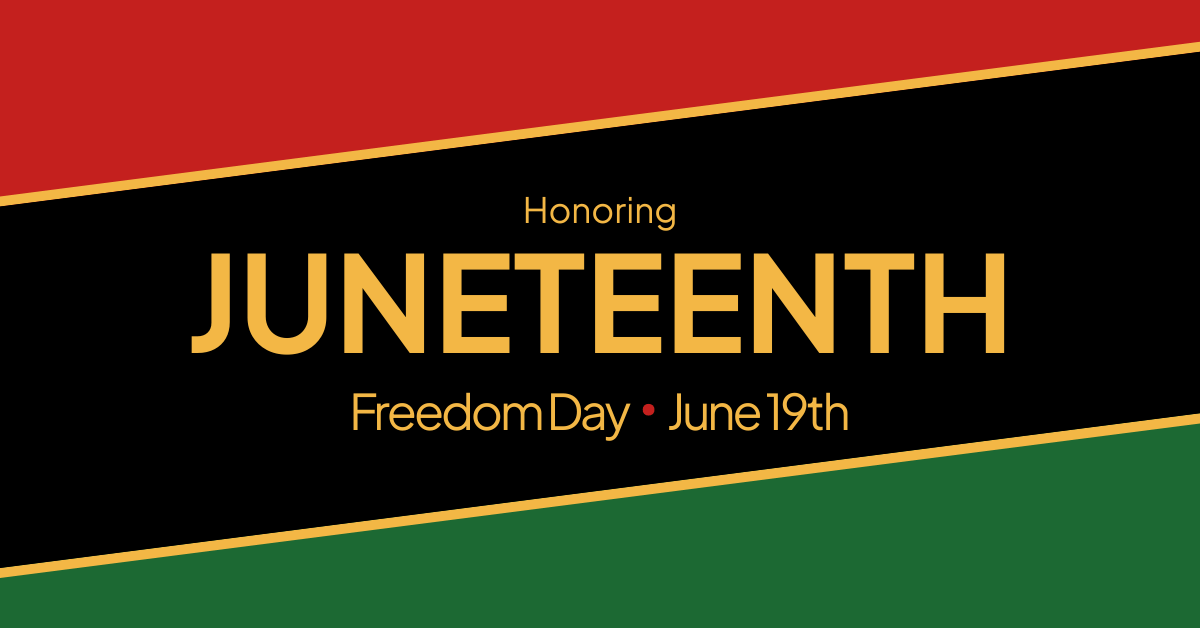As RMMFI has evolved over the past 13.5 years, we’ve learned a lot about the impact that inclusive entrepreneurship can have on people and communities. Ownership is about much more than the business, and we want to make sure our model — and the way we communicate it — is aligned to the larger impact we aim to achieve.
With that goal in mind, we worked with Social Venture Partners Denver and social change evaluators at Coeffect last year to design an updated Theory of Change for RMMFI. Our Theory of Change was both a process and a product, helping us reflect on our who, what, why, and how. With input from all our stakeholders, we were excited to create a Theory of Change that was aligned to our North Star, provided clarity of program outcomes, and captured what we’ve learned through our response to COVID. Given how we’ve grown and evolved, we also wanted a Theory of Change oriented toward the RMMFI of the future.
The product we designed tells the impact story of RMMFI. It illustrates the outcomes and impact we seek to create and the actions that get us there. Underlying our Theory of Change is an understanding of the problems we’re solving, the communities we serve, the resources we invest, and the assumptions about our external landscape that influence our work.
Externally, our Theory of Change is a powerful tool to communicate what we intend to achieve with partners and community members. Internally, it provides a framework for deciding what data is important to monitor and how to best allocate resources toward impact. And looking forward, our Theory of Change helps us see the potential for innovative new approaches to create even greater ownership of self, ownership of wealth, and ownership of community health.
Below, we describe what this ownership looks like and how our programmatic outcomes align to create it.

Ownership of Self:
Entrepreneurship Activates Potential
Entrepreneurship serves as a tool for self-actualization, personal agency, and fulfillment of dreams and ideas. From seeing a pathway to success to building strong foundations towards goals, engaging in entrepreneurship provides an opportunity for entrepreneurs to share knowledge, passions, skills, and traditions through families and generations.
| Idea Outcomes Entrepreneurs identify barriers to personal and professional success |
Launch Outcomes Entrepreneurs recognize their own potential and are empowered to define their personal and professional success |
Thrive Outcomes Entrepreneurs experience self-worth, personal agency, and fulfillment of dreams, potential, and ideas |
Ownership of Wealth:
Economic Mobility and Inclusion
In the face of systems that say “wait” or “never” to ownership, entrepreneurship provides economic mobility and opportunity to business owners and their households. From gaining access to business supports and capital to owning thriving and resilient businesses, entrepreneurs experience higher levels of financial independence and build generational wealth.
| Idea Outcomes Entrepreneurs explore and ideate business concepts |
Launch Outcomes Entrepreneurs launch and capitalize their business |
Thrive Outcomes Entrepreneurs and their households experience financial stability and growth through operating thriving, resilient businesses |
Ownership of Community Health:
Vibrant, Unique, and Empowered Communities
Inclusive entrepreneurship uplifts the freedom and autonomy of communities on their terms. From being equipped with a community of support to reinvesting locally as business leaders, entrepreneurs help advance a vision for thriving local communities.
| Idea Outcomes Entrepreneurs build community with one another |
Launch Outcomes Entrepreneurs develop meaningful connections to coaches, customers, and community |
Thrive Outcomes Entrepreneurs invest in their communities as owners, employers, and local leaders |
As our Theory of Change illustrates, entrepreneurship is a powerful tool for building both individual and community prosperity. But that impact is only achievable when we remove the barriers that have prevented too many from accessing the benefits of ownership.
Click here to view our full Theory of Change graphic.


